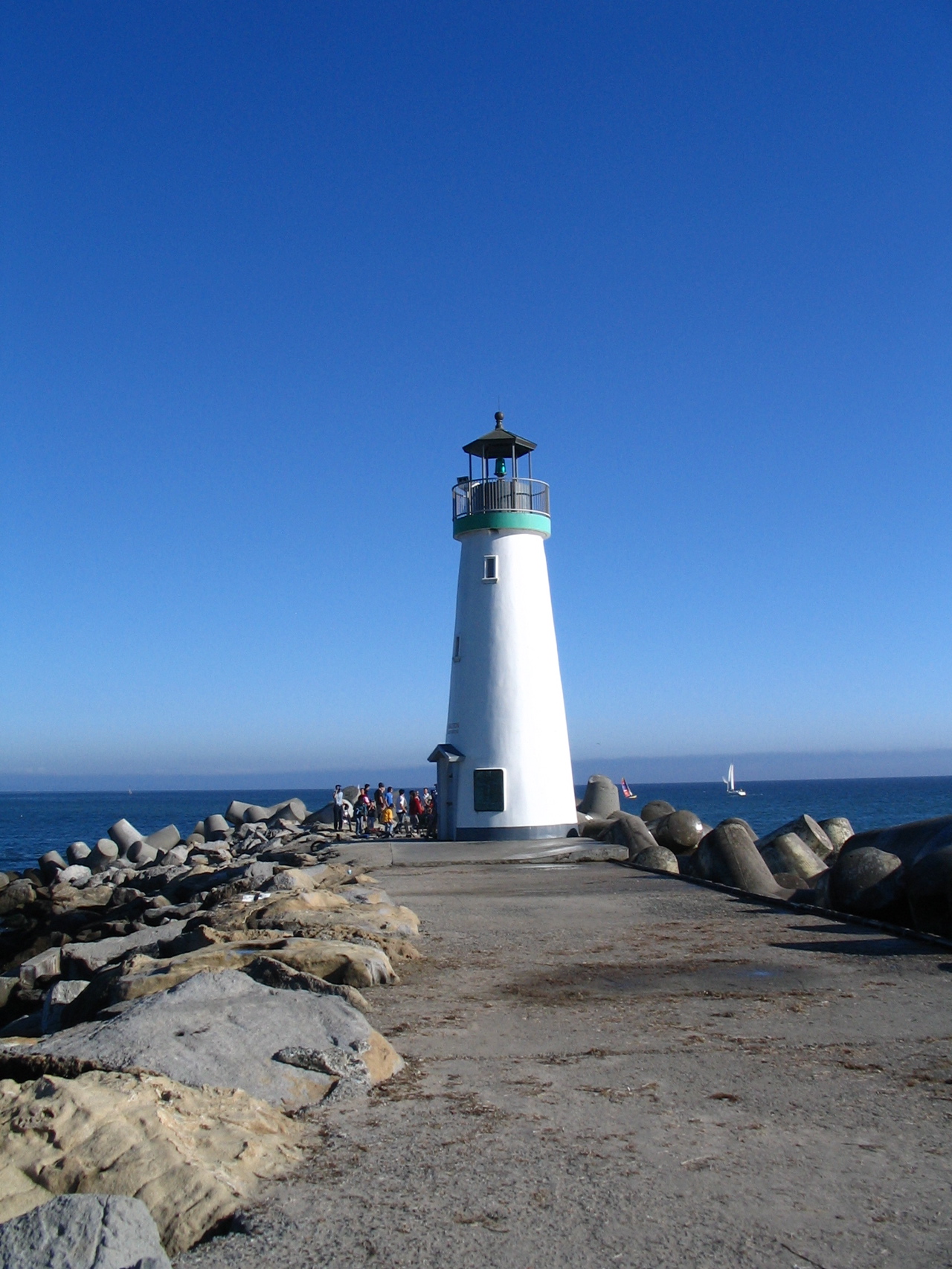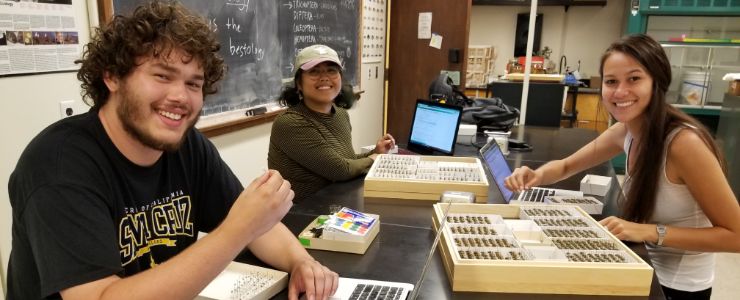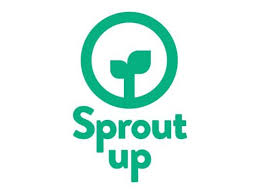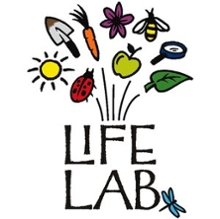TOP 12 Updated Available Internships
Post Street Farm
Listing can also be found under the Agroecology and Plants tab.
Contact: Matt Hodel Cell: (831) 251 - 2946 Email: Poststreetfarm@gmail.com
Address: 122 Post Street
Available for 2-Unit or 5-Unit interns

Students will learn to grow Dahlias, Peonies, Heirbom Tomatoes, Eggplants, Peppers, Beans, Cucumbers, Micro-green and so much more!!! You will learn to harvest honey and provide for our yearly pumpkin patch and Christmas tree farm.
Students will be able to grasp and learn weed maintenance, irrigation installation/maintenance, flower growing and harvesting, seed saving, produce harvesting, plant starting, bee-hive maintenance, and candle making.
No Previous Skills are Required; we will teach you as each season comes and goes.
Younger Lagoon Reserve Habitat Resoration Field Crew
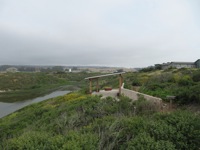
Younger Lagoon Internship
Listing also found in the Campus tab.
Contact: Vaughn Williams | vwilliams@ucsc.edu |
The UCSC Natural Reserves Office manages five natural reserves that are set aside for teaching, research and public education. We sponsor interns every quarter, including summer, to work at Younger Lagoon Reserve on our Habitat Restoration Field Crew. Student interns work outside among herons, hawks, and coyotes and pull invasive weeds, collect native seeds, propagate and plant native seedlings, maintain existing restoration sites, cut back trails, and conduct ecological monitoring throughout the year.
The Biodiversity in Urban Garden Systems (BUGS)
-
Listing can also be found under the Conservation & Agroecology and Plants tab.
Contact: Edith Gonzales Cell: 760-619-4322 Email: edmagonz@ucsc.edu if interested or stop by NS2 # 487
Interns please reach out to Stacy Philpott to be your faculty sponsor!!!

-
Open call for insect ecology-social connections research internship
Winter and Spring 2024, ENVS
Are you interested in learning about how diverse lived experiences can contribute to a gardener’s ecological knowledge and management preferences? The Biodiversity in Urban Garden Systems (BUGS) research group is searching for passionate and committed research project interns to support the research process by conducting a literature review. We can support you with internship credits and welcome interest in co-authorship.
Credit: Fernando Martí, “Futuros Fugaces: Armory Chinampas”, accessed via justseeds.org
No previous experience is required, you will be guided through the process. A general interest in agroecology is encouraged :)
Research project background: Gardeners from garden sites across the central coast of California were invited to participate in a survey in the summer of 2023. This survey prompted respondents with several insect ID questions for pollinators, herbivores, and natural enemies and asked about preferred garden management design and gardening goals. Additionally, a series of demographic questions were presented.
-
What type of work will the research intern conduct?
- summarize journal articles
- Synthesize findings and themes
What is the time commitment for this role?
- 4 hours per week
- Weekly meetings via zoom or in-person.
-
-
UCSC Fort Ord Natural Reserve in Marina, CA
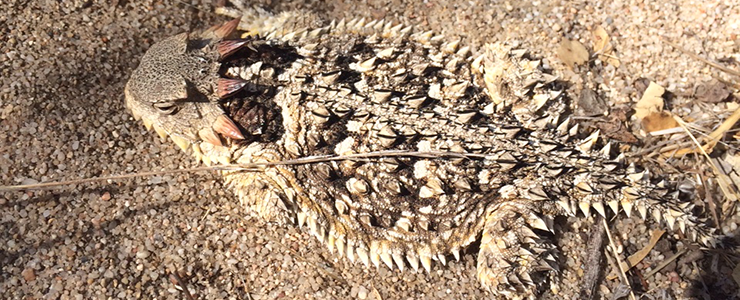
Fall 2024 Accepting Interns
Various Internships
Please Contact: Joe Miller, joemiller@ucsc.edu
Norris Center for Natural History
Norris Center Internshipship
The Norris Center welcomes students who are interested in natural history and want to get hands-on experience with a natural history collection in a meaningful way. 2-unit and 5-unit internships are available to students interested in creating their own projects or continuing long term projects. Past projects have included taxidermy, creation of exhibits, cataloging various collections, creating online natural history resources, teaching classes, leading hikes for campus groups, and writing natural history based books/curriculum. We have a diverse collection including an herbarium, and collections of birds, herps, fish, skulls, mammals, insects, etc. at your disposal to work with. Successful interns will have an interest in natural history and enthusiasm for learning.
- Herbarium Internship- learn about plants in the museum
- Taxidermy Internship- learn about how to prepare specimens for the museum
- Bird-window Collision Internship- conduct research to help decrease bird-window collisions
- Natural History Museum Management and Curation- learn the management and curation of the natural history museum
- Museum Education and Outreach- conduct outreach and museum education on campus and in the community
-
Norris Center Taxidermy Internship
Contact: Chris Lay, cml@ucsc.edu, (831) 459-4763
The taxidermy intern will be crucial in helping add to, and maintain, our current collections. The intern will be trained in how to skin, dry, document and properly preserve bird, and possibly mammal, specimens over the course of the quarter. According to a detailed protocol, the intern will work to create scientific specimens from previously collected animals to add to the museum’s collections.
Homeless Garden Project
Homeless Garden Project Internship
Contact: Omar Guzman, omarg@homelessgardenproject.org
The Homeless Garden Project provides job training on a 2.5 acre organic farm and its enterprises, to homeless individuals in the Santa Cruz area. We run a 60 member CSA (May through October) and have a retail store near downtown. Interns are encouraged to set their own goals and create a project that will leave a lasting impression on the organization, with unlimited access to the knowledge of the farm workers and agency staff as well as other agencies we work closely with. Tasks can include, but are not limited to: everyday farm maintenance activities – bed clearing, planting out, greenhouse propagation, irrigation, etc.; planning and teaching a workshop to crew and public participants; fundraising/grant writing; administrative assistance; cooking.
For more information, please visit the Homeless Garden Project website.
Jodi McGraw Consulting & UC Santa Cruz Greenhouses
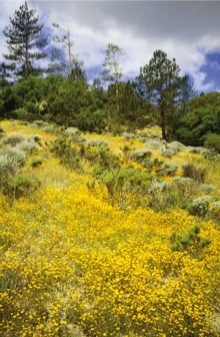
Sandhills Restoration Intern
Contact: Jodi McGraw, jodi@jodimcgrawconsulting.com (831)768-6988
Jodi McGraw Consulting is implementing a series of sandhills conservation and restoration projects, including a multi-year project to restore mined habitat within the approximately 114-acre restoration area of the Olympia Quarry in Felton, CA. The work done by interns is part of a longer-term restoration effort designed to establish native plant species form the sandhills communities, including rare native plant species, in order to help recover four federally-listed endangered species. Sandhills Restoration interns gain experience in the following aspects of conservation and restoration, with the precise activities depending on the season (i.e., quarter) of participation:
- Native plant propagation, including seed collection, cleaning, and growing;
- Native plant installation and maintenance, including weeding, pruning, and irrigation;
- Exotic plant identification and control strategies;
- Rare plant identification and monitoring, including mapping;
- Endangered insect surveys; and
- Monitoring of experimental trials to promote endangered plants and insects and restore degraded habitat.
Committee to Bridge the Gap

Environmental Policy Internship
Also Under Public Policy
Contact: Haakon Williams, h.williams@committeetobridgethegap.org
Fall 2024 Accepting Environmental Policy InternsCommittee to Bridge the Gap is a non-profit environmental and nuclear policy organization focusing on issues of environmental justice, government transparency, superfund site remediation, and nuclear decommissioning, disarmament, safety and waste disposal. For nearly half a century, Committee to Bridge the Gap has been fighting—and winning—environmental battles that have local, national and international impact.
Our work is aimed at exposing and correcting the shortcuts taken by polluters and the government agencies which oversee them, and the unholy alliance which exists between them.
Students will engage in hands-on research in teams with experienced environmental policy staff. Collaboration between CBG and other organizations, policymakers, and established journalists is frequent. Students will learn the nitty-gritty of actually affecting environmental policy and make real contributions to the environment at the same time.
Current projects include research and policy work on behalf of environmental justice communities in San Francisco and Los Angeles that are burdened with toxic contamination, and research and advocacy work on federal issues relating to high-level nuclear waste. This internship will continue to be remote for the time being. Learn more about us here.
UCSC Arboretum
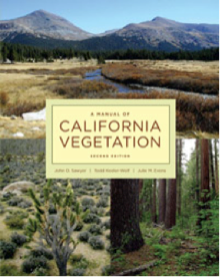
Interactive Ecology
Listing also found in the Conservation tab.
Contact Person: Brett Hall brett@ucsc.edu (please put Interactive Ecology in the subject line), (831)212-4853
Interactive Ecology interns will work primarily within the California Native Plant Conservation Program in the UC Santa Cruz Arboretum. Physical activities will include building plant collections through seed germination, propagation, nursery work, planting, garden work and invasive weed control. Where scheduling allows, we will take field trips to local wild areas to learn local plant communities and techniques involved in vegetation mapping, classification, habitat assessment and surveys.
Sprout Up
Sprout Up Internship Opportunities
The listing is also found on Environmental Education tab.
Sprout Up is a project of Environmental Volunteers founded in 2009 by undergraduates to instill a love for learning and an ethic of sustainability in our youth. Our environmental science & sustainability program links teams of college-student instructors with 1st and 2nd grade classrooms for weekly activities, experiments, and discussions that explore the relationship between humans and the natural world.
In the past decade, Sprout Up has grown from teaching 25 students in a single classroom in Santa Barbara to teaching more than 30,000 students across California and in New York City! We have also provided leadership development and training to over 3,500 college- student volunteers.
We're excited to grow our organization into new colleges and universities across the country, and we invite motivated college students to get involved!
Contact: Kendall Post, kendall@sproutup.org
Campus Natural Reserve
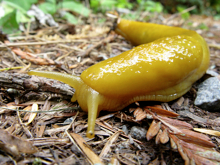
Various Internships
Contact: Alex Jones, asjones@ucsc.edu (831)459-4971
The UCSC Campus Natural Reserve provides numerous opportunities for internships and student projects involving plants, animals, forest ecology, restoration and stewardship. These offerrings include: FERP, Stewardship assistant, Phenology Litter Traps, Tomography, Herpatology, or even an opportunity to create your own internship.
Forest Ecology Research Plot (FERP) woody plant recensus--40 interns needed
Does the idea of spending six hours per week in the forest with new friends, feeling the winter sun filtering through the canopy, catching occasional rain drops, witnessing the first blooms and birdsong of the year, and collecting data for a globally-connected research project sound appealing? If so, we invite you to participate in research on the Forest Ecology Research Plot (FERP) as a field technician on our long-term woody plant census project. The FERP is part of the Smithsonian Institute's ForestGEO network: a global network of forest plots that are allowing us to track the dynamics of forest structure and composition around the world. You will work in a small crew of fellow students to find and measure tagged trees and tag and map new stems as we begin a recensus of the 16 hectare plot.The FERP is part of the UCSC Upper Campus and is about a 25 minute walk from Science Hill. As an intern you will earn 2 units of credit by enrolling in ENVS 184 via the ENVS Internship Office. You will complete 60 hours of project work: 9 of 10 field shifts during the Quarter (54 hours total) and a few simple FERP assignments (6 hours). Read more about the internship here.The internship is a convenient way to explore your interest in forest ecology while contributing to vital global research. We see something new every time and it's a great way to meet people with similar interests.Shift times: Our shifts run in a 6 hour block, once per week. You would work on one of the following shifts, sticking with the same shift each week.Special notes:- Make sure you're prepared with gear, etc.: We will provide you with tools, gloves, and other equipment needed for your specific project, but you'll be responsible for keeping yourselves comfortable and nourished. This means dressing in layers, having rain gear if it's going to rain, having sturdy shoes or rain boots if it will rain, a hat if it's sunny, etc. We have a few sets of rain gear, but not enough for everyone. You can get a cheap pair of rain pants and rain jacket online--doesn't have to be fancy, can be ~$20. Also make sure to bring enough water and food, including snacks and lunch if your shift straddles that time period. A good attitude, willingness to work hard and have fun, and lots of curiosity and enthusiasm are really helpful as well. If you have a beater pair of shoes or boots, best to wear those, as they will definitely be exposed to poison oak oils.
- If you know you are highly sensitive to poison-oak oils, the FERP is not for you ---we wear gloves and full-body coveralls, but your footwear, and your skin if you're not careful, will be exposed to poison-oak oils. It is a woody plant, so it's actually part of our study and we do actually measure it!
- We will be out in the woods for a full 6 hours! In addition to the above information about staying warm, fed and hydrated, you may want to bring other supplies to keep yourself comfortable out there. We have some extra toilet paper and sanitary products, but you should plan ahead and be prepared to spend 6 hours away from campus.
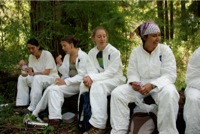
Stewardship/Ohlone Tiger Beetle monitoring internship--2 interns needed
Shift times: Our shifts run in a 6 hour block, once per weekTuesdays 9:30 am-3:30 pmAssist with a wide variety of stewardship tasks on the Campus Natural Reserve and surrounding campus natural lands. Stewardship projects include the following: (1) woody plant removal from coastal prairie, (2) coastal prairie monitoring (3) management of invasive plant species, including surveillance, monitoring, identification, mapping, and removal, (4) trail maintenance and erosion control on reserve trails, (5) assisting with trail closures, (6) cleaning out abandoned camps and other forest and meadow trash piles, and (7) installing signs and fences. We will also begin monitoring federally endangered Ohlone tiger beetle adults in coastal prairie habitats beginning in late January. This work involves counting adult beetles along road and trail transects--not rocket science, but part of an important regional effort to conserve this endangered species. Throughout the course of the Quarter interns will visit diverse habitats in various portions of the Campus Natural Reserve, and will pick up some natural history of various plants and animals along the way. Internships require punctuality, a strong work ethic, and the ability to work outside in all weather conditions in rough, uneven terrain and in dense thickets. Interns will gain experience with a wide variety of skills needed to manage and maintain a natural reserve that receives significant human use. Training on the safe use of hand tools will be provided. Interns should wear closed-toed shoes, long pants, and should have a long-sleeved upper layer they can put on when we work in dense vegetation. Interns should also bring lunch and enough water for the day (1 to 2 liters). Alex Jones, UCSC Campus Natural Reserve Manager, will communicate each week's meeting location via email or text, so it is extremely important to be diligent with checking your UCSC email account and phone
Campus Natural Reserve rapid assessment--2-4 interns needed
Shift times: Following training you will be able to determine your own schedule in conjunction with other interns or IDEASS studentsWork with the Campus Natural Reserve manager and students from IDEASS to survey the newly expanded Campus Natural Reserve. The rapid assessment will include navigating on and off-trail and using a mobile data collection platform (you know, an offline app, not some kind of cool hovering and scooting platform that you'd sit on and cruise through the forest whilst collecting data) to record photographs, a variety of human impacts, rare species, invasive species, and more, within 50m2 grid cells across the reserve. Field work will be done in groups of two or more students. This will be an excellent way to get to know campus natural lands while contributing valuable information that will inform reserve management.
UCSC Life Lab
School Garden Internships
The listing is also found in Environmental Education tab.
Contact: Cara-Alexandra Sundell, cara@lifelab.org
Come enjoy the Spring season in the garden and get school credit. Interns receive training in: Garden-based science education, working with children in an outdoor setting, organic gardening, garden development projects, environmental education, games, activities, and much more! Interns teach garden-based science to local 2nd-grade school groups.
Center for Agroecology (CfA)
-
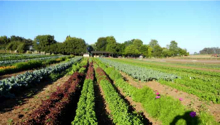
Farm Internship
Listing also found in Agroecology and Plants and Summer tabs.
Contact: Damian Parr, dmparr@ucsc.edu
The UCSC Center for Agroecology is offering a lower division production internship focused on field-scale harvesting and orchard care, as well as general market garden-scale cover cropping, bed tillage, composting, and propagation. The production sites include the Chadwick Garden, Farm Garden and the Field. Internship activities with the Basic Needs and Cowell Coffee Shop include produce distribution through pop-up and pantries, and meal preparation, cooking and serving. The internship will include a cohort of approximately 15 interns, working as a team. Each year, a number of paid student staff positions are available to graduates of our internship program.
